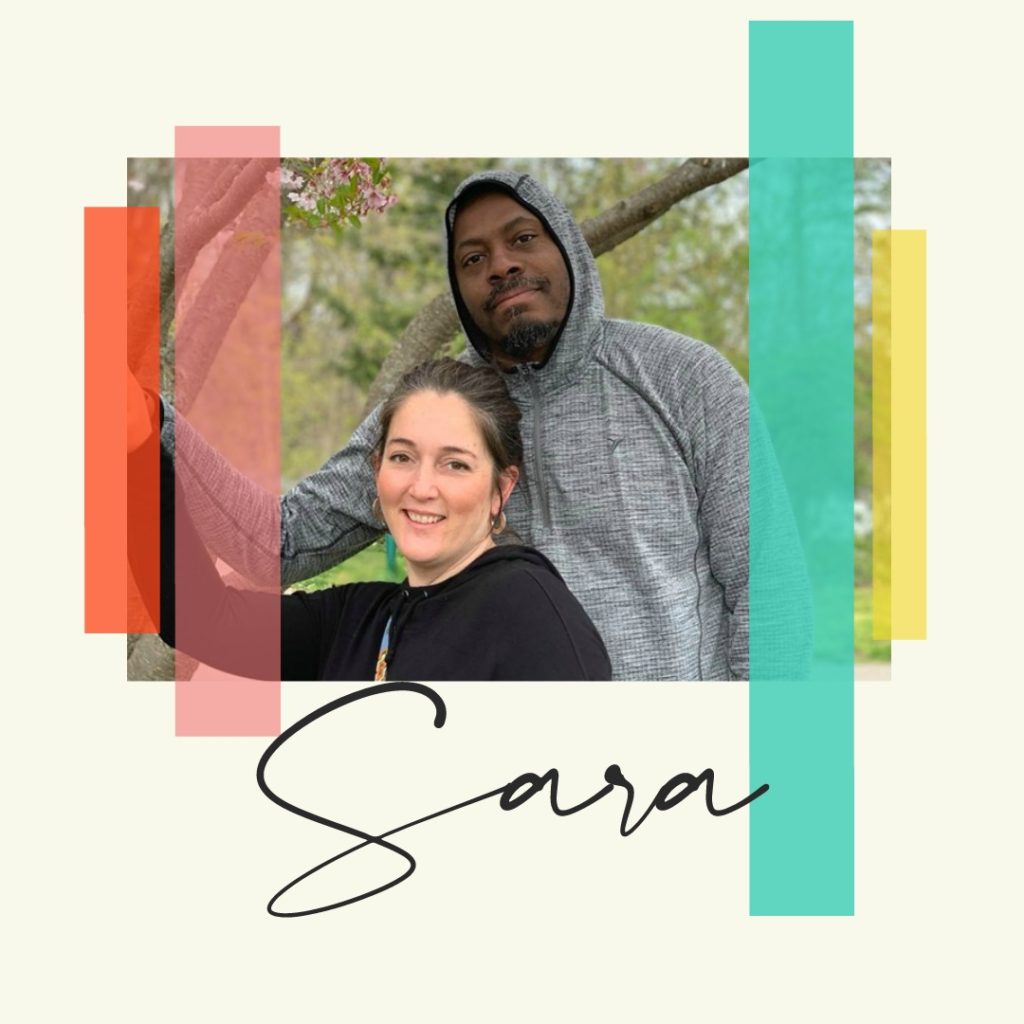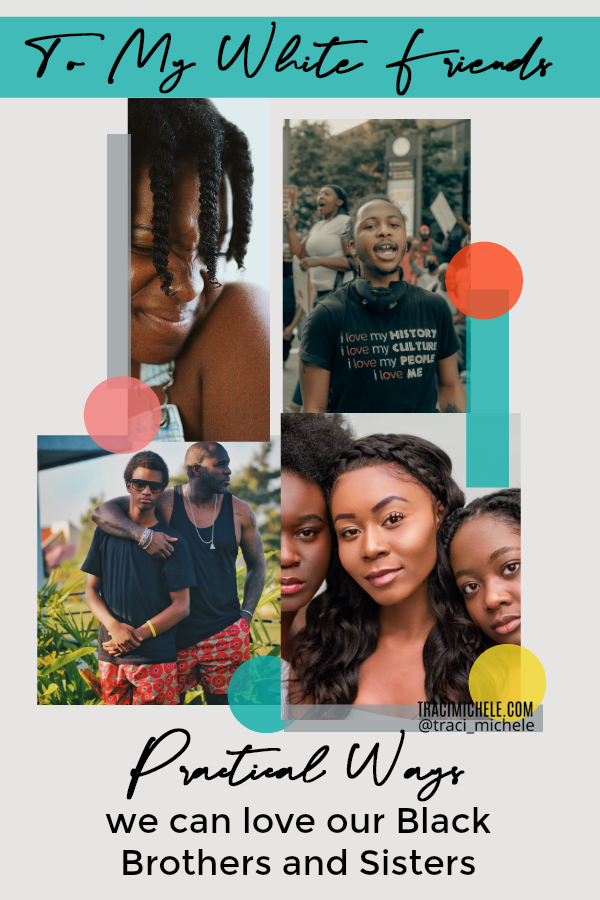This is Part 2 of a five day series: A Message To My White Friends- Practical Ways We Can Love Our Black Brothers and Sisters. You can read Part 1 Here.

Diane says,
Acknowledge That Racism Still Exists Today
One of the most important things is to talk to your children about it. No one is born a racist. They learn it. So having conversations with your children is key. My daughter, who is an elementary school teacher, provided this document with additional resources.

Walk The Talk
Role model the behavior. For example, racism isn’t funny. It’s evil so racist jokes/memes aren’t funny.

Appreciate Our Color
I saw that a friend posted about she and her kids not seeing color (she is white). That post struck me because saying you don’t see color is basically turning a blind eye to the problem. Color is a thing and there are differences.
Teach Your Children
The world sees people of color differently and white people need to teach their kids about racism because it’s unfortunately not going anywhere. They need to know that their minority friends may be treated differently and they need to know how to react in those situations if they do happen. Acting like color isn’t there does not help the situation and can sometimes make it worse.
The Gospel Needs To Be Spread
The main thing that needs to be spread is the gospel because this is the only thing that is going to change people’s hearts and minds. We are living in a sinful world and that is where these problems are stemming from. If we can’t love like Jesus loved, we will never see a change.
Sydney says,
Start Conversations
Have a conversation about these difficult concepts with your family, children, or employees (if applicable). It is important for us not to shy away from reality. We should talk not only about racism/brutality, but also about the differences in cultures. For example-why might a black woman not want to get her hair wet?
Speak/Act Out!
This could include literal speaking (eg confronting a racist remark), making a post on social media, or voting for leaders who do not tolerate discrimination in any form. People will have different comfort levels and abilities to participate here (for example, not everyone can talk or afford to donate) and that is okay!
Think About Your Own Stereotypes
Take time to think about your own personal stereotypes. Everyone, regardless of race, has stereotypes and could benefit from this. For example, do you assume things about a certain person based only on their appearance (they must be poor, they must be from the city)? This step is probably the most important action available, and it’s something that I want to take more time to do as well.

Sara says,
I am White. I have been married to a Black Man for 15 years. This does not mean I live it or fully understand what it means to be Black. But I now filter much of what I see through the lens of what my husband and children must face. I have had to continually educate myself and take steps to understand. Here are what I would suggest as practical steps a White person can take against racism:
Check your heart
It’s time to repent. Don’t let your motives be out of guilt. When we are talking about racism and police brutality, the root we are talking about are spiritual and issues of the heart. Genuinely spend some time with the Lord and check where your heart is at. Do you have bad thoughts about other races? When you have these thoughts, take them to the Lord and rid yourself of them. The media often causes these divisions, so guard your hearts and minds. Ask the Lord to come and help soften your heart and help you with understanding people that are not like yourself. Repent.
Educate yourself
There are plenty of books to help you on this journey. Mainstream media will often show you things that may cause misunderstanding and cause further division among races. There are many people working to combat this with blogs, vlogs, and even local panel discussions. When you find a good resource, share it. Even share it with your children’s teachers, the school board, and other community agencies.
Start the discussions as home
I am truly passionate about this one. You have to be talking to your children about this! I’m not telling you an age to start, but at a certain point it needs to be happening. Tell your children about racism. Give them examples of what that looks like. Show them the history and what is still happening today. Read them books about it. There are a ton of amazing picture books about the civil rights movement. Ask them what they would do in certain situations. If I have to have talks with my children about what to do if they are not with my husband or myself and confront racism or are pulled over, I need you to tell your children what to do in those situations also. I need you to teach them to stand up and combat the problem. When we aren’t around, I need your children to stand with my children. That can only be done if they really understand the issue.
Please come back throughout this week to hear more of these beautiful voices! If you missed Part 1, you can read it here.


